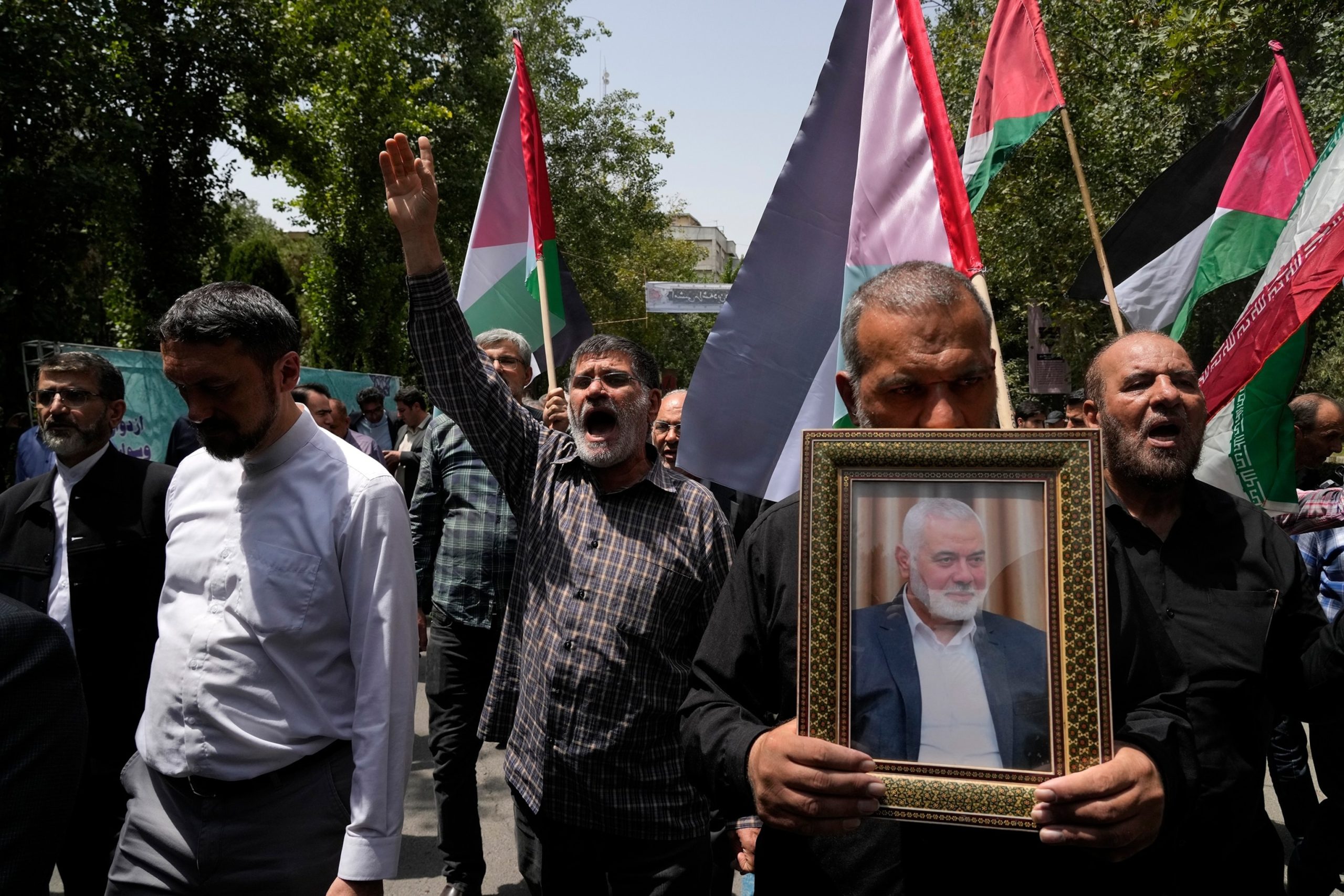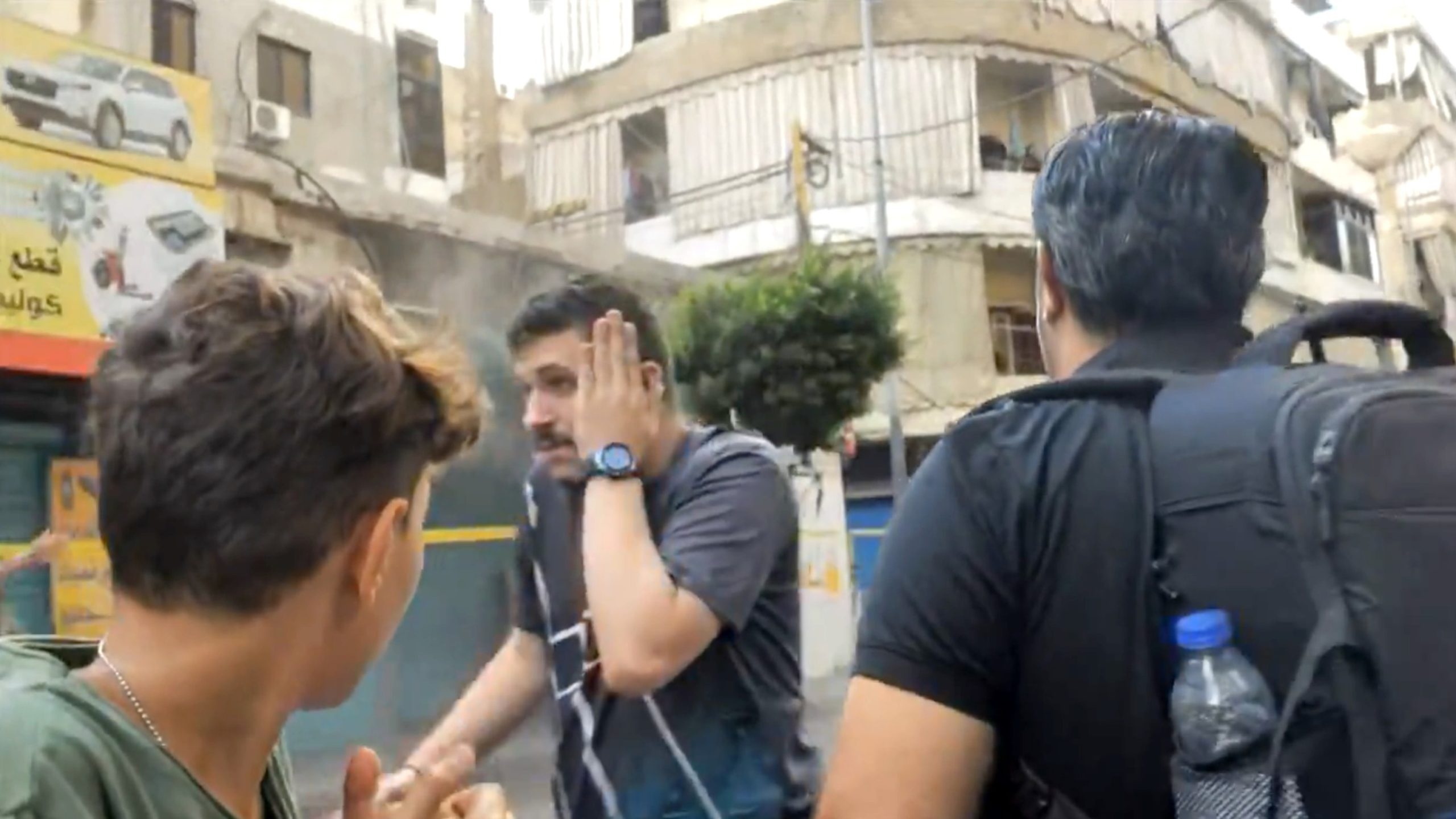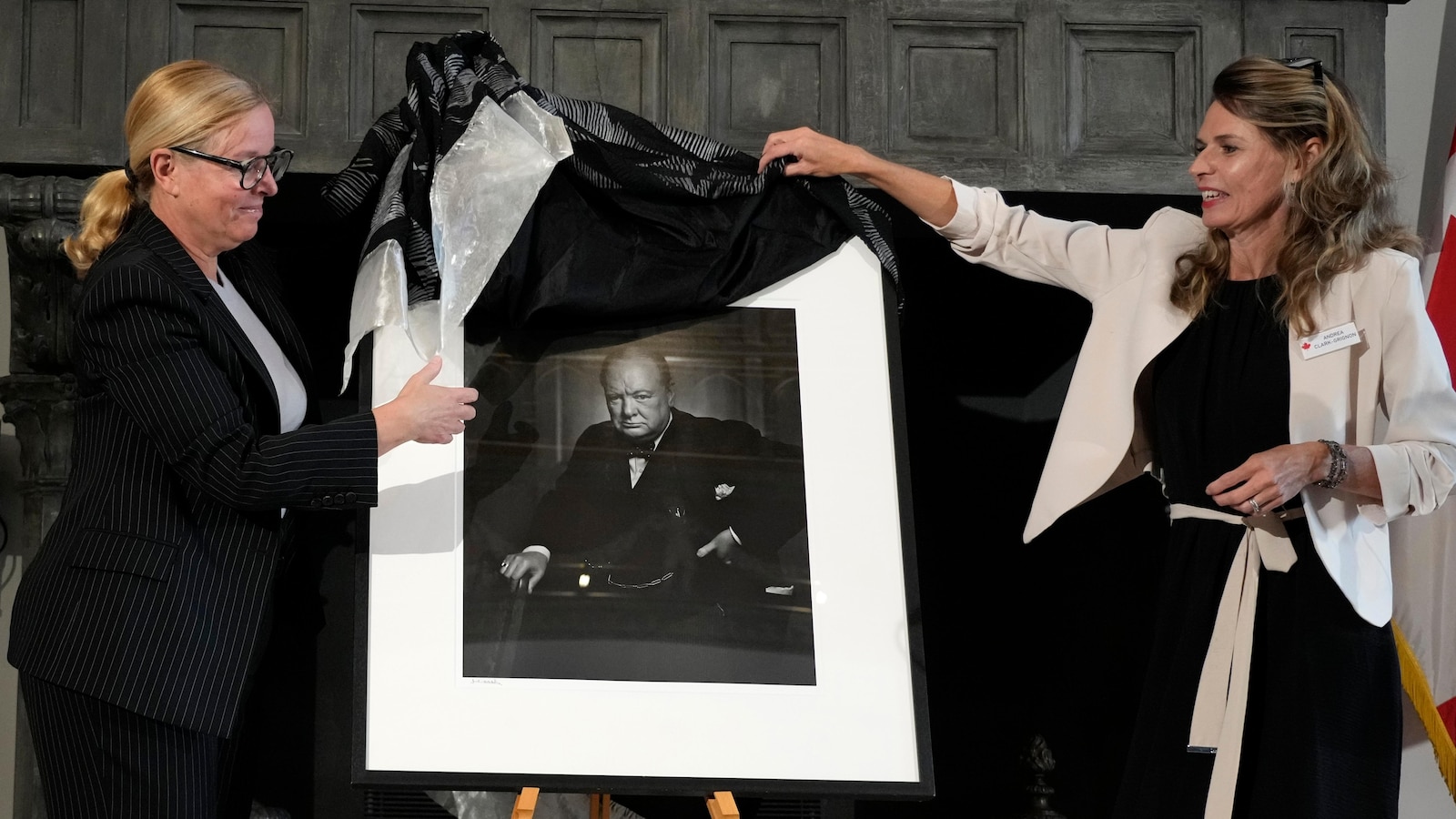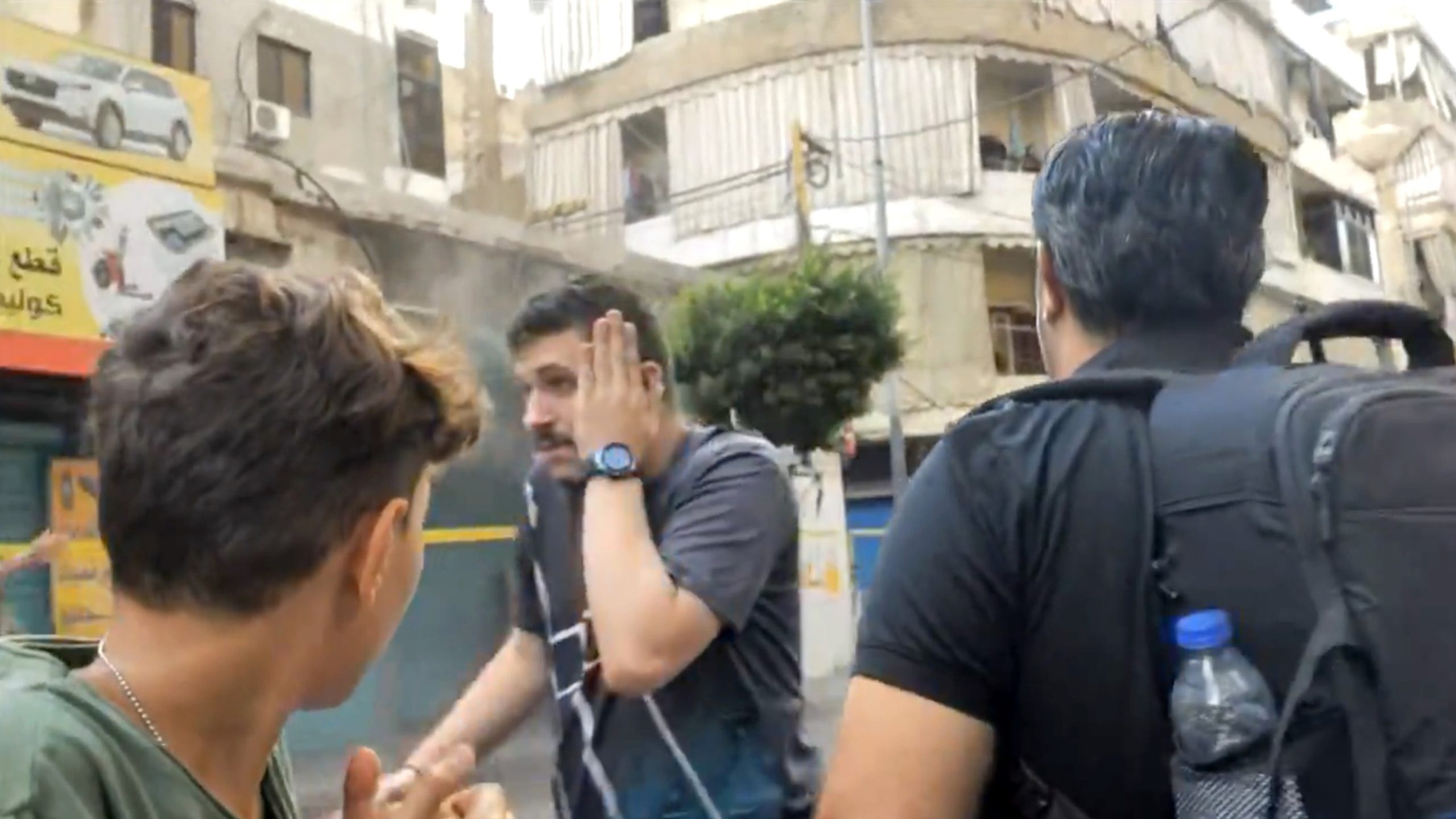The assassination of Ismail Haniyeh has the entire Middle East on an absolute knife’s edge.
When we wrapped up our ABC News coverage on Tuesday night, Israel had just announced they had killed a senior Hezbollah leader in Beirut, their targeted response to the Golan Heights rocket attack.
The question was when and how Hezbollah would respond, but the overriding sense was that both sides were likely to find a way not to escalate to all-out war.
That’s now been completely upended.
An attack in Tehran, the heart of Iran, killed the political leader of Hamas not long after he attended the inauguration of Iran’s new president at the invitation of the country’s supreme leader. Haniyeh was in their care. This is a huge deal.
Israel hasn’t taken direct responsibility, but Iran’s supreme leader has said the attack came from the “criminal and terrorist Zionist entity.”
“With this act, [Israel] paved the way for a severe punishment, and we consider it our duty to avenge the blood of those who were martyred in the Islamic Republic of Iran,” said Ayatollah Khamenei.
But just what that response looks like and when it comes is anyone’s guess.
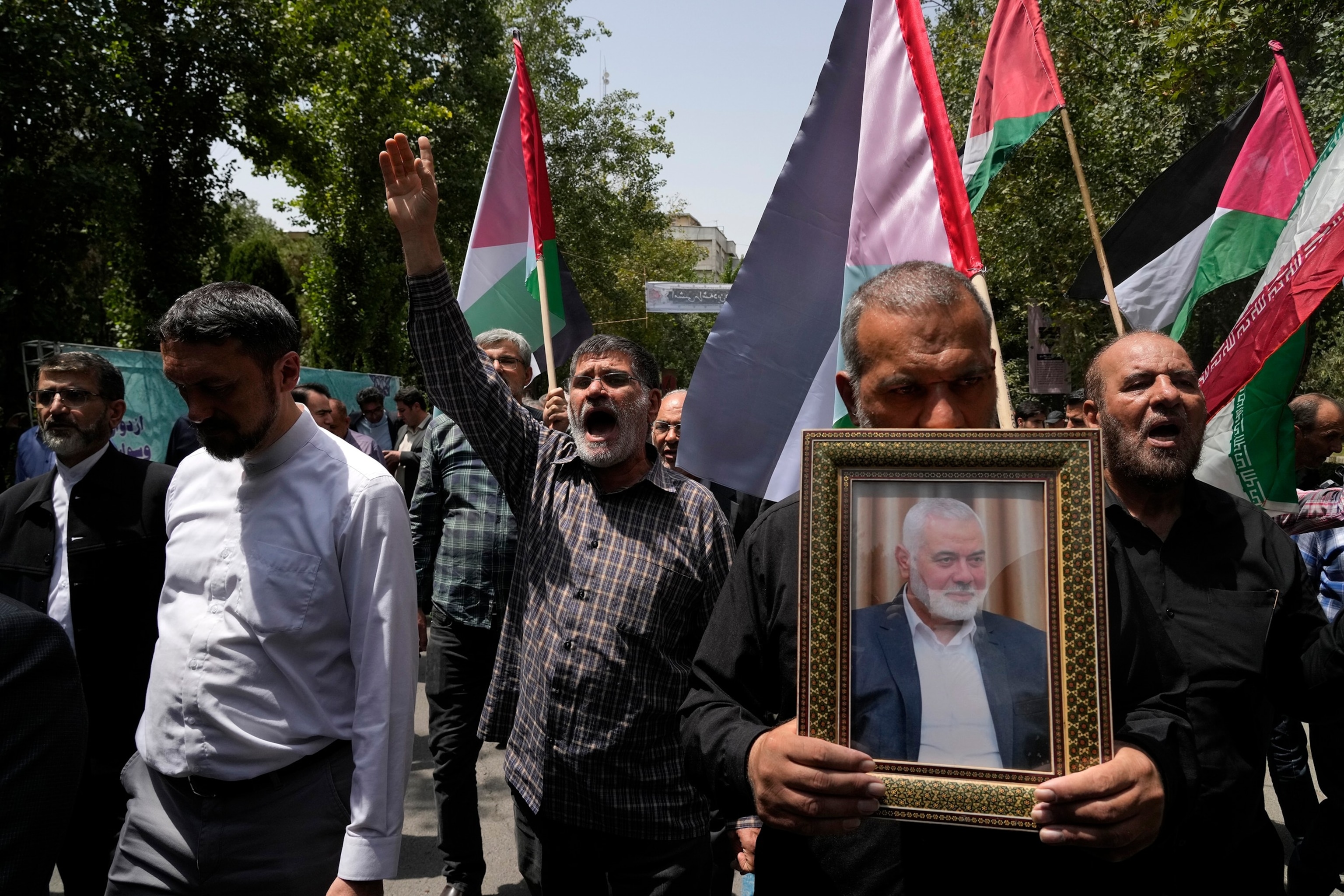
Members of Tehran University Council chant slogans in a protest to condemn the killing of Hamas political chief Ismail Haniyeh, shown in the picture, at the University, in Tehran, Iran, Wednesday, July 31, 2024. Haniyeh, Hamas’ political chief in exile was killed in an airstrike in the Iranian capital early Wednesday.
Vahid Salemi/AP
It could be another missile or drone attack from Iran like we saw a few months ago. It could be Iran hitting Israeli targets abroad. We know security is being stepped up at Israeli embassies worldwide. It could be both options, neither or something else entirely.
Does the Iranian response preclude a response from Hezbollah? Their leadership had promised to target Tel Aviv if Beirut was hit. Well, a Beirut suburb got hit. A salvo from Iran could be joined by a salvo from southern Lebanon. Hezbollah does as Tehran instructs.
For its part, Hamas has also vowed to respond, saying the attack won’t go unanswered and will only serve to prolong the conflict.
Israel Defense Forces has stepped up its security posture throughout the country, closing airspace within 50 miles of the border.
It’s worth noting that both the Beirut and Tehran attacks by Israel were targeted — limited civilian casualties and what the IDF says were legitimate military targets.
There is uniform opinion from most Israeli analysts, including those ABC News has spoken to personally, that Iran isn’t going to go to war over the killing of a Hamas leader. They didn’t after Soleimani was killed after all. After all, they didn’t after the commander of Iran’s Revolutionary Guard’s elite Quds Force, Qassem Soleimani, was killed in a U.S. strike and Soleimani was far more important to Iran than Haniyeh.
But this was a strike right in their backyard at a time when they are trying to project strength throughout the region. It’s not only embarrassing, it’s also a security lapse that has caught them flat-footed.
Accordingly, their response could be severe, even if not intended to cause all-out war. But just because you mean for a response to be targeted and limited doesn’t mean something won’t go wrong or that the other side will see it that way.
So continues this extremely dangerous back-and-forth game between Israel and its enemies. It’s been kept in check so far, but few are sleeping easy in Tel Aviv right now.
The recent assassination of Iranian nuclear scientist Mohsen Fakhrizadeh in Tehran has sent shockwaves through the international community and raised concerns about the potential consequences for regional stability and global security. Fakhrizadeh, who was widely regarded as the mastermind behind Iran’s nuclear program, was killed in a brazen attack on November 27th, 2020, with many pointing fingers at Israel as the likely culprit.
The assassination of Fakhrizadeh comes at a delicate time for Iran, as the country is already grappling with a number of challenges, including economic sanctions, political unrest, and the ongoing COVID-19 pandemic. The killing of such a high-profile figure is likely to further escalate tensions between Iran and its adversaries, particularly Israel and the United States.
One of the immediate impacts of the Tehran assassination is the potential for retaliation from Iran. In the past, Iran has vowed to avenge the deaths of its scientists and military leaders, and it is likely that Fakhrizadeh’s killing will only serve to strengthen Iran’s resolve to push back against its enemies. This could take the form of cyberattacks, proxy warfare, or even direct military action, raising the specter of a wider conflict in the region.
The assassination also has implications for the future of Iran’s nuclear program. Fakhrizadeh was instrumental in developing Iran’s nuclear capabilities and his death could set back the country’s efforts to build a nuclear weapon. This could have far-reaching consequences for regional security, as it may prompt Iran to accelerate its nuclear program in response to perceived threats from its adversaries.
Furthermore, the assassination has broader implications for global security and the stability of the Middle East. The region is already a tinderbox of competing interests and rivalries, and the killing of a key Iranian figure is likely to further destabilize an already volatile situation. The risk of miscalculation and escalation is high, with the potential for unintended consequences that could have far-reaching implications for international security.
In conclusion, the assassination of Mohsen Fakhrizadeh in Tehran has significant implications for current events and has the potential to reshape the geopolitical landscape in the Middle East. The fallout from this incident is likely to be felt for months, if not years, to come, and it is imperative that all parties involved exercise restraint and work towards de-escalation to prevent further violence and instability in the region.
